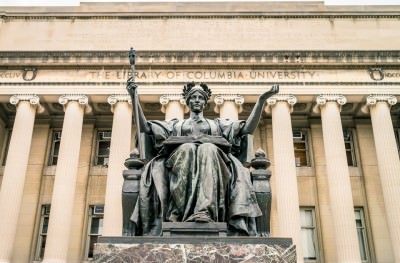After two years of legal back-and-forth, a Columbia student will be allowed to sue the University, which he claims violated his Title IX rights in an adjudication process that found him responsible for sexual assault.
The student, identified by the pseudonym “John Doe,” initially filed a lawsuit against the University in the spring of 2014. But after a federal judge dismissed the lawsuit following a motion from Columbia, Doe challenged the judge’s decision in a federal appeals court—and won.
“It is entirely plausible that the University’s decision-makers and its investigator were motivated to favor the accusing female over the accused male,” the decision said, though it “in no way suggests” that the court “has any view, one way or the other” on Doe’s complaint itself.
In the lawsuit, Doe alleged that a “pro-female, anti-male bias” influenced former Title IX investigator Jilleian Sessions-Stackhouse, a sexual assault hearing panel, and Columbia College Dean James Valentini as they investigated his case, issued him a one-year suspension, and denied his appeal, respectively.
Doe’s lawsuit also says that public pressure pushed these decision-makers to rule against Doe, who was then a first-year varsity rower, “in order to avoid further fanning the criticisms that Columbia turned a blind eye to such assaults.”
While the April 2015 decision from the federal judge effectively ruled that Doe lacked a strong enough legal argument to go to court, the appeals court decision suggests that there is “nothing implausible or unreasonable” about his claims.
In particular, the decision overrules the district court judge’s claim that public pressure to rule one way is not sex discrimination, instead arguing that this sort of bias could still violate Title IX.
“A covered university that adopts, even temporarily, a policy of bias favoring one sex over the other in a disciplinary dispute, doing so in order to avoid liability or bad publicity, has practiced sex discrimination,” the decision said, “notwithstanding that the motive for the discrimination did not come from ingrained or permanent bias.”
This ruling, which was issued by the U.S. Court of Appeals for the Second Circuit, is likely to be interpreted as a victory for students who say they have been unjustly found responsible for sexual assault.
While a wave of students such as Doe and Paul Nungesser, CC ‘15, have been filing similar Title IX lawsuits against their universities in recent years, their success in court has been mixed.
For instance, Nungesser’s lawsuit against the University—which used the same law firm that represents Doe—was also dismissed in the fall, although he recently filed a new complaint on different legal grounds.
But because the appeals court decision goes against the federal judge’s dismissal—which has been cited to dismiss similar Title IX cases, including Nungesser’s—it may have broader implications.
Still, the appeals court added that several of Doe’s arguments are “not persuasive,” and that its decision does not mean Doe will win his lawsuit against Columbia—only that he can pursue it.
“A court at this stage of our proceeding is not engaged in an effort to determine the true facts,” the decision said.
Neither Doe nor his lawyer, Andrew Miltenberg, immediately responded to requests for comment. Paul Wolfson, a lawyer representing Columbia, declined to comment.
Source: columbiaspectator.com





Be the first to comment on "Student’s Gender-Bias Lawsuit Against Columbia May Proceed, Court Rules"